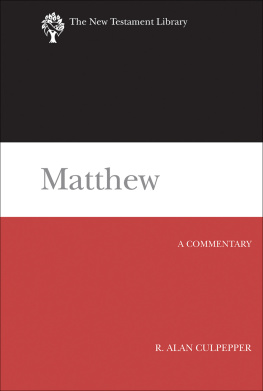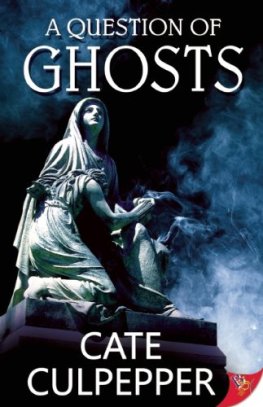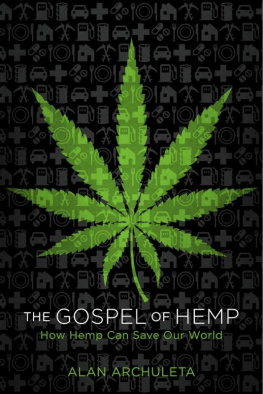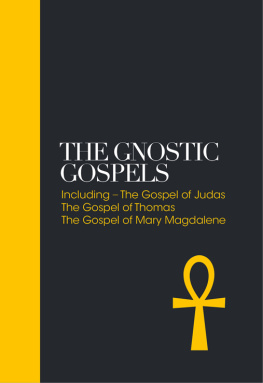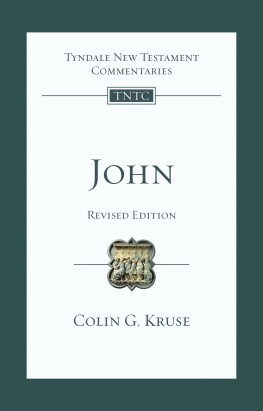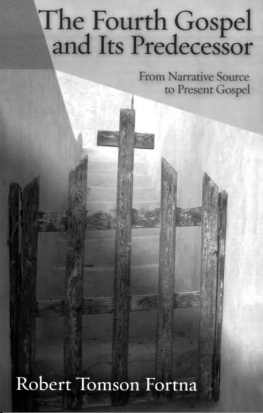R. Alan Culpepper - Anatomy of the Fourth Gospel
Here you can read online R. Alan Culpepper - Anatomy of the Fourth Gospel full text of the book (entire story) in english for free. Download pdf and epub, get meaning, cover and reviews about this ebook. year: 2009, genre: Religion. Description of the work, (preface) as well as reviews are available. Best literature library LitArk.com created for fans of good reading and offers a wide selection of genres:
Romance novel
Science fiction
Adventure
Detective
Science
History
Home and family
Prose
Art
Politics
Computer
Non-fiction
Religion
Business
Children
Humor
Choose a favorite category and find really read worthwhile books. Enjoy immersion in the world of imagination, feel the emotions of the characters or learn something new for yourself, make an fascinating discovery.
- Book:Anatomy of the Fourth Gospel
- Author:
- Genre:
- Year:2009
- Rating:5 / 5
- Favourites:Add to favourites
- Your mark:
- 100
- 1
- 2
- 3
- 4
- 5
Anatomy of the Fourth Gospel: summary, description and annotation
We offer to read an annotation, description, summary or preface (depends on what the author of the book "Anatomy of the Fourth Gospel" wrote himself). If you haven't found the necessary information about the book — write in the comments, we will try to find it.
Anatomy of the Fourth Gospel — read online for free the complete book (whole text) full work
Below is the text of the book, divided by pages. System saving the place of the last page read, allows you to conveniently read the book "Anatomy of the Fourth Gospel" online for free, without having to search again every time where you left off. Put a bookmark, and you can go to the page where you finished reading at any time.
Font size:
Interval:
Bookmark:

R. ALAN CULPEPPER
Foreword by
Frank Kermode

v
vii
ix

Alan Culpepper wrote much of this book in Cambridge, England, and during his stay I had the pleasure of seeing him often and reading his work in progress. At that time I was convinced of its value; but on reading it again in its final form I perceive that I had not fully grasped its significance.
For a Christian minister there must always be a difference between the word of the secular text and the Word of the gospel. He or she will therefore want to avoid the dilemma in which Shakespeare's Richard II found himself, of setting "the Word itself / Against the word." Culpepper has acquired techniques of narrative analysis which originate in secular scholarship. For example, when he treats of time relations in narrative he uses methods brought to a high state of refinement by Girard Genette, who honed them on Proust. But he does so in full knowledge of the proper relationship between word and Word. The sharp severance between gospel narrative and objective history has, over more than two centuries, caused deep disturbances in biblical scholarship and divisions among the faithful. Culpepper rejects unreflecting literalism on the one part and easy skepticism on the other; he maintains that the only way to heal these divisions is to achieve a proper understanding of the gospel as story, and of the relation of story to truth. Can a story be true if it is not "history"? This is a question, according to Culpepper, on which "the future role of the gospel in the life of the church will depend.... When art and history, fiction and truth, are again reconciled we will again be able to read the gospel as the author's original audience read it." Of course we will bring to it our own conditioning, the new shapes of our minds as they have been formed by the pressure of so long a tradition.
It may be, as Culpepper conjectures, that it is our lengthening experience with secular narrative-with the rich and various history of the novel-that has made possible this kind of return to John and the other evangelists. In a book of which Culpepper has taken due note, Hans Frei acutely remarked that at the crisis of historical narrative the Germans developed Higher Criticism, which painfully called into question the veracity of the gospel narratives, and the English invented the novel. If that is so, there seems to be a certain propriety in attempts to apply to the study of the gospel lessons learned in the study of the novel.
Culpepper is not the first to make such an attempt, but it seems fair to say that no one else has shown such eclectic thoroughness in the use of modern narratological techniques. He owes a good deal to Seymour Chatman, and through him to Roman Jakobson and others; but he adapts his model to his own proper purposes, and takes what he needs from others, such as the Russian narratologist Boris Uspensky and the Israeli Meir Sternberg, to name only two. Terms which may be new to readers whose orientation is primarily to biblical scholarship-"implied author," "implied reader," 'narratee," and so forth-are lucidly explained. Readers who already have an acquaintance with these terms, and with the works of such theorists as Wayne Booth, Wolfgang Iser, Genette, and Chatman, should be grateful for the clarity with which Culpepper presents the material of modern biblical scholarship, with which they are equally unlikely to be familiar. This book strongly upholds the position, long since enunciated but still widely ignored or disputed, that there can be no sharp distinction between sacred and profane hermeneutics.
In claiming that position, Culpepper is required to be at once tenacious, bold, and modest. He has maintained this posture admirably, so that neither proponents of the sacred nor proponents of the profane may legitimately take offense, for neither could claim to have been neglected or treated with disrespect. And, to end more positively, I think that anybody who reads this book will be rewarded by a deeper understanding of John, and of narrative generally.
Frank Kermode

It may be the experience of all authors to find that their books interest them as much as this one has interested me, but I doubt it. Writing it has been a fascinating and joyful experience: fascinating because of the new directions which are being opened for students of the gospels by current literary studies, and joyful in large measure because of the help and encouragement I received from so many sources. The writing of any book is usually a shared adventure; such has certainly been the case with this one.
Without the time and income provided by The Southern Baptist Theological Seminary's sabbatical leave program I would never have been able to do the research which has cultivated my interest in literary criticism of the gospels. Southern also provided a special grant from a donor and the equipment and assistance needed for the preparation of the manuscript. The Association of Theological Schools and the Education Commission of the Southern Baptist Convention provided a research grant and financial assistance which made it possible for me to spend the academic year of 1980-81 in Cambridge, England. There, through the hospitality of Professor Ronald E. Clements, Fitzwilliam College, and the Divinity School, I was able to use the fine resources of the University Library and work in an environment which has stimulated academic pursuits for centuries. The opportunity to study in that setting and participate in the Cambridge New Testament Seminar is one for which I am deeply grateful. Professor Frank Kermode graciously encouraged me to pursue this project, recommended sources I had not yet discovered, and read the first draft of each chapter. His guidance made it possible for me to work into the field of current literary theory, poetics, and narratology, a field in which I am still a novice. My mentor, Professor D. Moody Smith, has again shown the personal warmth and wisdom his friends and students admire as he read the manuscript and made numerous well-founded suggestions. David Rhoads, my friend and fellow pilgrim in literary criticism of the gospels, worked through the manuscript with meticulous care, making critical comments and suggestions which have been of tremendous value in helping me to make the book both more precise and more readable. Every writer should have such friends!
The first draft of Chapter 2 was presented to the Johannine Seminar of the Society for New Testament Studies in August 1980, and an abridge ment of the final draft of this chapter was printed in the SBL 1982 Seminar Papers for the Literary Aspects of the Gospels and Acts Group. Parts of Chapters 7 and 8 were presented to the Arts, Literature, and Religion Section of the American Academy of Religion and the Biblical Section of the Theological Education Association of Mid-America in the fall of 1981. The discussion and responses of colleagues at each of these meetings helped me shape the material in these chapters. My graduate seminar in the fall of 1981 perceptively distinguished what made sense from what did not, and from Paul D. Duke in particular I have learned a great deal about John's use of irony. As typists, Peggy Shaw and Terri Mathews demonstrated both professional skill and a patience and tolerance worthy of saints. From the beginning, Fortress Press has provided the level of support and technical assistance which has helped them earn a place of distinction as publishers in the field of biblical research. Professor Robert W. Funk graciously suggested publishing this volume, and he and Char Matejovsky at Polebridge Press have produced it accurately and efficiently. Through it all, my family has patiently endured my obsession with this manuscript with love and understanding, celebrated the passing of milestones toward its completion, and reminded me that there is much more to life than the consumption and production of books.
Font size:
Interval:
Bookmark:
Similar books «Anatomy of the Fourth Gospel»
Look at similar books to Anatomy of the Fourth Gospel. We have selected literature similar in name and meaning in the hope of providing readers with more options to find new, interesting, not yet read works.
Discussion, reviews of the book Anatomy of the Fourth Gospel and just readers' own opinions. Leave your comments, write what you think about the work, its meaning or the main characters. Specify what exactly you liked and what you didn't like, and why you think so.


